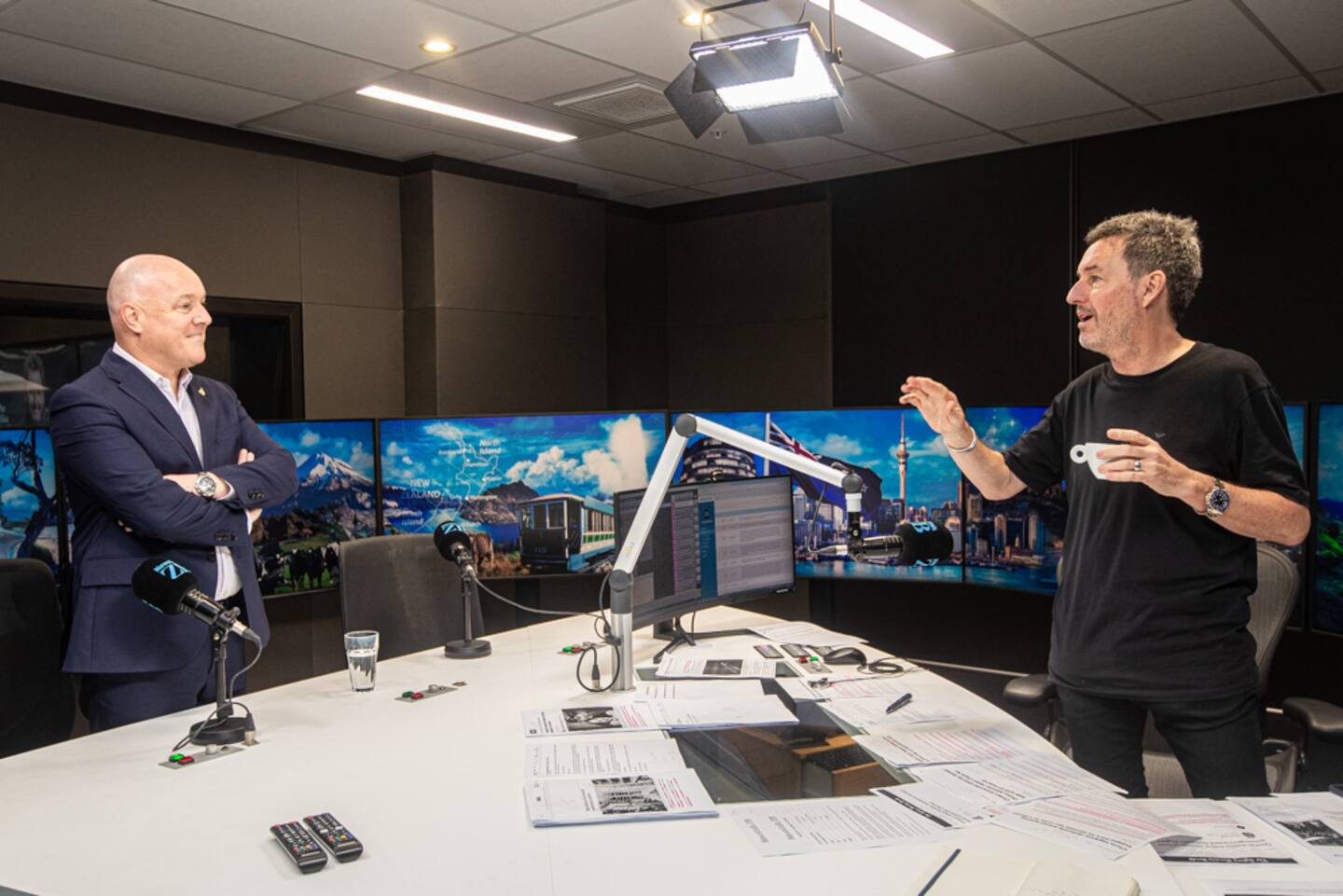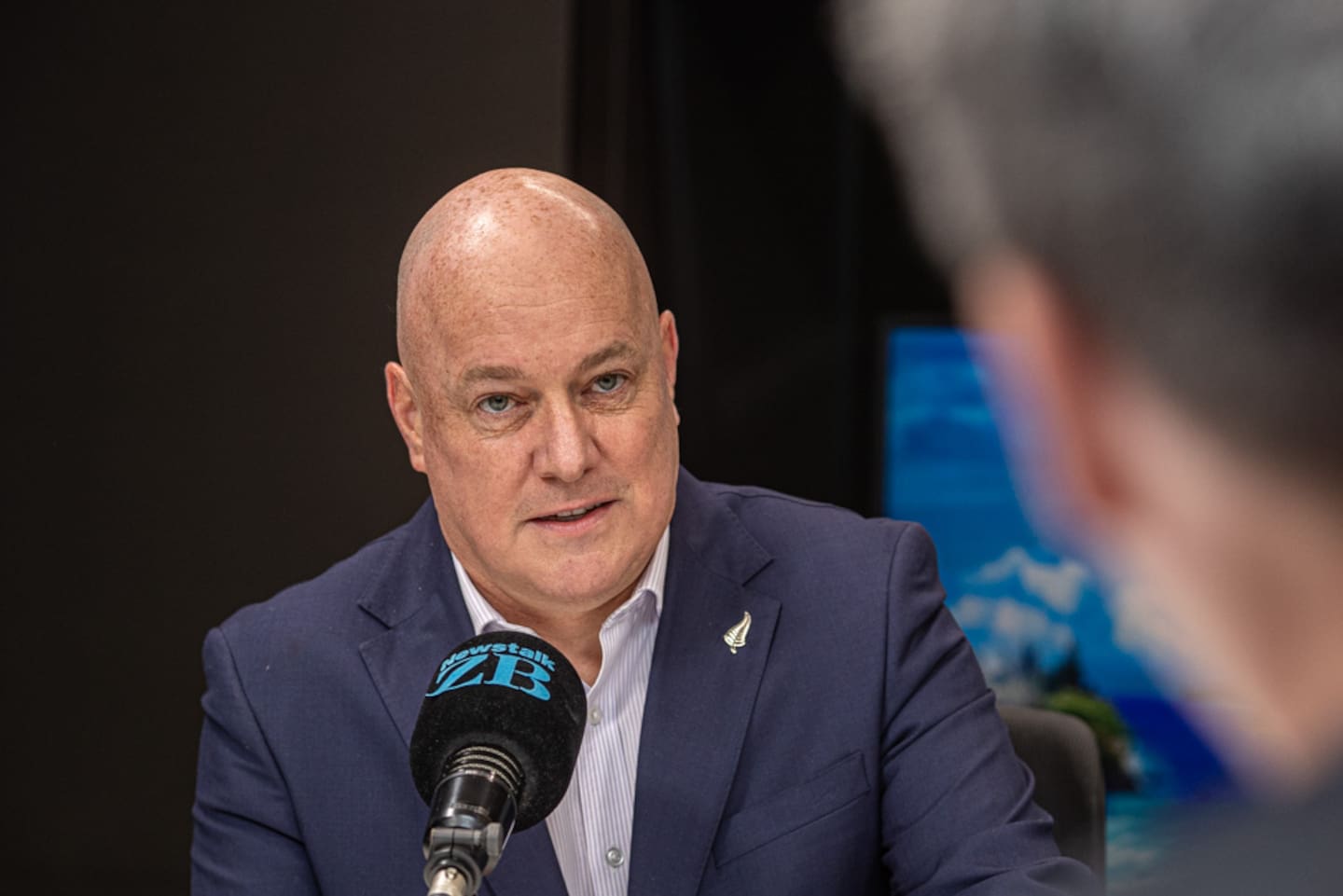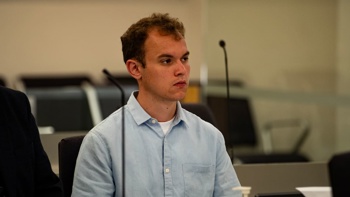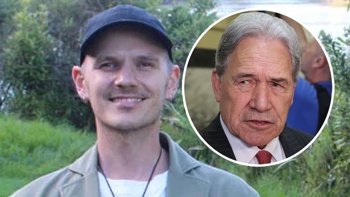Christopher Luxon left this morning for Niue and Fiji, his first trip to the Pacific since taking office.
Speaking to Newstalk ZB’s Mike Hosking earlier this morning, Luxon said the Pacific is “really important to our foreign policy”.
Luxon said he was not anxious about walking into unrest after Fiji fired multiple MPs due to pay disputes but was interested in getting a sense of “regional issues”.
Luxon said he did not have an alternative plan if his plane failed to take off this morning.

Speaking to Newstalk ZB’s Mike Hosking earlier this morning, Luxon said the Pacific is “really important to our foreign policy”. Photo / Jason Dorday
Boosting trade with Fiji and assessing Niue’s reliance on other countries for development will be among Prime Minister Christopher Luxon’s key missions during his first official visit to the Pacific.
Luxon, days after his Government delivered its first Budget, is flying from Auckland to Niue and then on to Fiji this week in what will be his first opportunity to form in-person relationships with the respective leaders as greater focus from global superpowers centres on the region.
His first leg in Niue will include a meeting with Premier Dalton Tagelagi, in which the pair will recognise the impending celebration of 50 years of Niue’s self-government in free association with New Zealand later this year.
Alongside likely investments in infrastructure, Luxon is expected to reinforce New Zealand’s position as Niue’s first call for assistance with development - a nod to China’s growing influence not just in Niue but across Pacific Island countries.

Luxon was set to attend the Pacific Islands Forum in November last year, but drawn-out coalition negotiations meant representatives of National and the former Labour Government went in his place. Photo / Jason Dorday
Niuean-born New Zealand-based public health expert Sir Collin Tukuitonga told the Herald that China’s presence in the small island nation was evident through solar farm projects and re-sealing roads, alongside discussions of China’s inclusion in parts of Niue’s education curriculum.
“The Chinese are there now in a big way ... so I imagine that would be a concern for Luxon,” he said.
However, he suspected Luxon would receive a clear response if he was overly critical of Niue’s engagement with China.
“The Niuean leaders will tell you, the reason for [China re-sealing roads] is they’ve been asking Wellington for yonks for assistance with the roads,” he said.
“Whilst the solar has been supported by New Zealand, it’s nowhere near enough and the power generation on the island is marginal.
“Political leaders on Niue would say, ‘Well, we’ve asked Wellington and we’ve been fobbed off’.”
Tukuitonga, who regularly returned to Niue and was involved in health studies on the island, said the 50 years of self-governing was an important milestone, but it came at a time when Niue faced severe labour shortages and concern for its native language.
Only 1500 people lived on the island while about 30,000 Niueans lived elsewhere including in New Zealand and Australia. Tukuitonga said about 15 per cent could speak the native language.
“There’s a real concern about the loss of the language and when you lose a language, you lose a culture.
“Successive New Zealand governments have really failed in their duty to provide for, as it says in the constitution, necessary support and they have really neglected their responsibility to support the language.”
Nevertheless, Tukuitonga expected Luxon’s visit to be welcomed like past leaders. Former PM Dame Jacinda Ardern was a beloved figure on the island. Dubbed the “daughter of Niue”, Ardern had a strong connection through her father Ross, who was formerly New Zealand’s High Commissioner to Niue and its police commissioner.
Sir Collin Tukuitonga returns to his birthplace of Niue often. Photo / University of Auckland
Luxon’s statement announcing the trip on Sunday clearly set the scene for his visit to Fiji as having a “significant trade and economic focus” amid “increasingly choppy geostrategic waters”.
Luxon was set to attend the Pacific Islands Forum in November last year but drawn-out coalition negotiations meant representatives of National and the former Labour Government went in his place.
At the time, Massey University senior lecturer Dr Anna Powles - who studied geopolitics, security and conflict in the Pacific - said Pacific leaders would understand the reasons for Luxon’s absence.
Powles yesterday told the Herald there was a sense Luxon was “not particularly well-known” in the region and would need to deftly navigate the unique relationships New Zealand had with Niue and Fiji.
“I think there’s a tendency by New Zealand politicians to assume that New Zealand is received probably much better than New Zealand necessarily is viewed.
“There are certainly concerns in the region about the geopoliticisation of the region and around the role that New Zealand and Australia are taking in that.”
The Pacific Islands Forum has previously expressed concern about the Aukus security pact between Australia, the United Kingdom and the United States, warning it brought the region closer to war and risked nuclear proliferation.
New Zealand was currently assessing whether it would join the non-nuclear level of Aukus.

Prime Minister Christopher Luxon said the visit to Fiji would have a strong focus on trade. Photo / Mark Mitchell
Fiji and New Zealand’s positions on Aukus and other geopolitical issues in the region could be discussed during Luxon’s meeting with Fiji Prime Minister Sitiveni Rabuka, which Powles said would be “really valuable”.
“There are certainly growing concerns in the region about the way in which strategic competition is impacting local politics, impacting local security dynamics, disrupting the regional architecture and so on.
“So it’s a conversation that has obviously been ongoing for a number of years but is certainly becoming increasingly important.”
Powles noted China’s strong interest in Fiji, which included signing a policing co-operation agreement.
Luxon’s visit also coincided with troubles in Fiji’s politics and economy, namely the backlash from a recent vote to increase politicians’ pay at a time of high debt and poverty.
“This is probably one of the most significant political challenges that Fiji is facing since the Rabuka coalition was elected in 2022, so obviously Luxon is going to have to tread very carefully while he is there.”
Adam Pearse is a political reporter in the NZ Herald Press Gallery team, based at Parliament. He has worked for NZME since 2018, covering sport and health for the Northern Advocate in Whangārei before moving to the NZ Herald in Auckland, covering Covid-19 and crime.
Take your Radio, Podcasts and Music with you









